Robin Reardon's Blog: Robin Reardon: Speaking of writing...
December 3, 2023
Making pie out of picked cherries
The only thing wrong with being queer is how some people treat you when they find out.
A bold statement, I agree. But I stand by it, using it as a lodestone for my novels and other fiction. And as I’ve observed or participated in debates about whether it’s true, I’ve been fascinated by what appears to be a pretty clear delineation between flawed assumptions that are not based on religious beliefs, and equally flawed assumptions that are.

This dichotomy inspired me to use my Substack site (Robin Reardon Writes) to highlight the flawed assumptions that are based on Biblical scripture. I’m collecting the cherries (that is, scriptural verses) that anti-gay “people of faith” pick out of context in an effort to condemn LGBTQ+ people, and I’m making pie out of those cherries. That is, I’ll put the verses back into context, where they belong, and where they by no means condemn anyone based on sexual orientation or gender identity.
I’ll update this blog each time I write a new post. Here’s what I’ve written so far.
INTRODUCTION TO THE SERIES , in which I describe a critical difference between religion and faith, and between religion and fact, and establish a factual foundation upon which other posts will be based.
ADAM & STEVE , in which I push back hard against assertions that the Bible defines marriage as one man and one woman.
SODOM & GOMORRAH , in which I demonstrate how obvious it is that this story is not about homosexuality, despite how many knickers get twisted by one verse in what is really a rather long Biblical story.
There will be more posts to come. The goal of this series is to make a case for what I believe all religion should point toward: Love.

September 15, 2023
I’m on Substack. Free! How cool is that?

My Substack Home Page
I’ve always loved a blank page, and I’ve aways been interested in lots of different things. I started my website blog several years ago. Recently it occurred to me that other than my books, the only places my writing could be seen were on my website and on Goodreads. That was a start. But it felt kind of lonely.
As an author, it doesn’t feel to me as though the internet has offered me the same kinds of opportunities it offers people who knit sweaters, or make little wooden boxes, or buy paper towels in bulk to sell on eBay. Then I heard about Substack.
Substack is a community of writers and people who like to read. A lot of content out there must be paid for, but not all. I had to give it a try, and I decided to make mine free. I call it the same thing I called my blog: AND NOW, THIS .
Best of all, Substack is a place where authors and readers can interact on a more meaningful level than any other platform I’ve encountered.
Who can see it?Anyone with an internet-enabled device can read my Substack posts. However, anyone who’d like to know when I’ve posted something new should subscribe. It’s free!
 What kinds of content will be there?
What kinds of content will be there?My postings will have a wide range, so you can pick and choose:
Short Stories (sometimes I’ll include an audio file of me reading them)
Where ideas for my books come from
My take on things relating to the LGBTQ community ( here’s an example )
Audio clips of book chapters (with me reading them; here’s an example )
In-depth articles about themes that are important in my work
Things that affect or concern me deeply
Subscribers will be able to engage in chat sessions that I’ll initiate. I’m considering doing some live Q&A sessions. Maybe there will even be a chance for you to influence the plot or characters of a future book.
How often will new content be posted?My plan is to post something new once a week. There’s so much on Substack that inspires me that I think this will be fun.
Subscribe NowThere are already several posts of mine out there for anyone to see, with new posts coming regularly. And once you’re there, I hope you’ll explore the entire Substack site and see what else is happening. Don’t miss out! Join the fun!

July 4, 2023
A SCOTUS mistake from the start
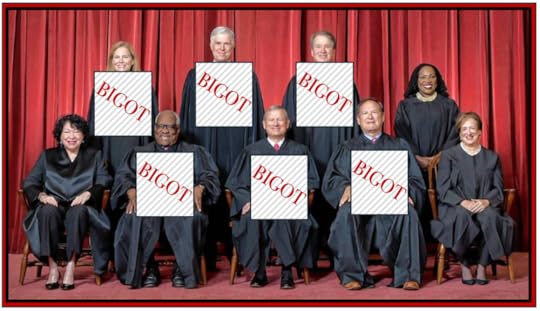
Last month, the U.S. Supreme Court gave permission for business owners to refuse service to anyone they don’t like.
Many people have weighed in on the injustice of this decision, so I won’t rehash that aspect. But I will say this: SCOTUS should never have agreed to hear this case.
The plaintiff was Lorie Smith, a Colorado web designer, who opposes marriage equality based on religious dogma she believes. She opened a lawsuit in 2017, claiming that a man whose first name is Stewart had requested that she design a website for “a gay marriage.” The state was forcing her, she claimed, to do something against her religion.
Four flaws were immediately apparent:
Smith was not designing wedding sites in 2017.
Stuart did not make any request of her. And he was already married—to a woman.
Stewart is, himself, a web designer and did not need Smith’s services.
Smith offers her services to the public.
Smith lost the case she brought to the Colorado courts, so she appealed to SCOTUS. And despite the obvious absurdities, SCOTUS agreed to hear the case. Either they did not bother to check the validity of Smith’s claims, or at least six of the justices didn’t care. In either case, they heard the case, they found in favor of Smith, and so they have opened the door to discrimination against LGBTQ+ individuals across the country.
This decision is, on the surface, a profoundly bigoted one and an obvious slap in the face to gay individuals in general and marriage equality in particular. Beneath that surface is evidence that bigotry makes people stupid (and perhaps the other way around, as well). Because if the six justices who agreed with Smith are chuckling in their robe sleeves, what they haven’t considered is other ramifications of what they’ve done.
Scenario 1: An Asian man and Black woman are engaged and planning their wedding in Denver. They approach web designer “Jones” to design a website for their event. Unbeknownst to them, Jones is a white supremacist who thinks anyone who doesn’t belong to the superior white race should head back to wherever they came from. He leans on cherry-picked biblical scripture to support his position and also to deny inter-racial marriage.
Scenario 2: A Satanist baker in Colorado Springs doesn’t ask about her clients’ religious persuasions, but when an engaged couple come into her store and ask for a wedding cake festooned with crosses and other Christian symbolism, she shakes her head. “Nope; won’t do it.”
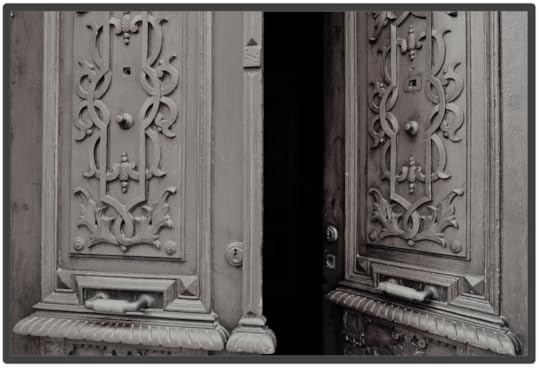
Until now, Colorado’s laws would have prevented both of these discriminations. But because of the recent SCOTUS decision, both these businesses can turn these couples away with impunity.
Legal bigotry against Asians and Blacks; legal bigotry against Christians. Are these scenarios likely? We don’t know. Yet. But SCOTUS has flung the door open to the possibility. So I’ll say this again: SCOTUS SHOULD NEVER HAVE AGREED TO HEAR THIS CASE.
May 19, 2023
A naked wood sprite. A Great Pyrenees Dog. A minister....

I can’t say why or how the Great Pyrenees dog known as Klondike found his way into the story, but he plays a very important role.
And as for the wood sprite.... You’ll just have to read the book to know that that’s all about.
Get your print or e-bookFor Love of Self is the second book in the Blessed Be series.
For Love Of God , book 1, is also available. Each can be read alone; together they take you on Spencer’s journey with him.
What do a naked wood sprite, a Great Pyrenees dog, and a Unitarian Universalist minister have in common?And another question: What’s a New York City boy doing in a place like this?An assignment as minister of a Unitarian Universalist church in northern Vermont was not quite how Spencer Hill had pictured putting is Master of Divinity to use.
It doesn’t take him long, however, to realize that this is the perfect post for him. The parish is very progressive; they don’t care that he’s gay. This is a welcome change from his first few years of graduate school. He had been convinced that God was calling him to the Episcopal priesthood. But because Spencer was gay, the Episcopal church was a little less sure about him.
My inspiration for the character of Spencer is a gay man I met many years ago, when we both sang in the professional choir of an Episcopal cathedral. He left behind a career as an actor to become an Episcopal priest. I’m sure his training as an actor and his deep, expressive voice stood him in good stead when it came to connecting with a congregation.

August 4, 2022
Confessions of a het cis woman writing gay fiction

Photo: Mart Production
In 1983, across a table at a New York City sidewalk café, my friend Jody Thomas told me in hushed tones about the "gay plague." I'd never heard of it before. Neither of us knew then that within ten years it would claim him.
I dedicated my first novel, A Secret Edge , to him. That book was my square in the AIDS quilt, in his memory.
Over the next couple of decades, after that conversation with Jody, I watched in horror from my comparatively safe het/cis world as friend after friend came down with the disease that had taken Jody. Most of them died.
Part of my horror was the apparent lack of concern from most of society—the callous lack of medical response from all but a few brave souls—because, after all, it was “just the gays.”
In 2005 I heard an interview with David Levithan. He had just published Boy Meets Boy, a light-hearted if improbably optimistic story. Having read Holleran’s Dancer From The Dance, White’s A Boy’s Own Story, and Rechy’s City of Night, I was ready for a story about gay people that wasn’t dark, that didn’t end in tragedy because the characters were gay. I decided to write one.
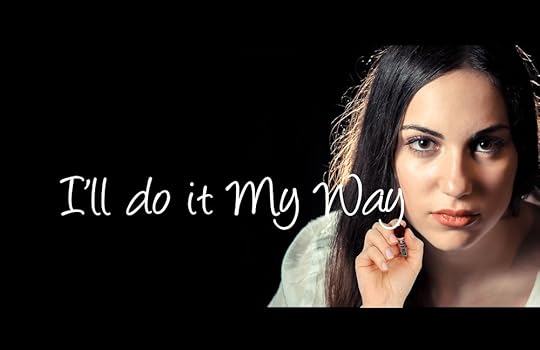
Photo: Gerd Altmann
My early books are about real boys. Boys who were just learning about themselves in all kinds of ways, including that they were gay. Boys who were bullied and tormented and treated as though they weren’t quite human. Boys who needed to understand that their destiny should not be dictated solely by whom they loved. Boys who needed to know that being true to themselves was the only path to being truly human.
The gay characters in my more recent works are in their twenties. The more stories I write, the more interested I am in other ways of being human, under that colorful umbrella of all things queer. I’ve included peripheral characters who were bi, or gender queer, or trans, or intersex.
There’s controversy in the world of fiction around the question of whether a straight woman can—or even should—write stories about gay men. Understandably, much of the push-back concerns female writers who have attempted to hide their gender, who want readers to think they are gay men.
I’ve read some of these novels, and I understand why many gay men don’t like them. I wouldn’t tell the authors they shouldn’t write these stories; I consider any condemnation of them to be the purview of the queer community. Are these authors committing a kind of cultural appropriation? I’ll leave that for others to decide.
I never hid who I was. My website has always had a picture of me on the “Author” page. Even so, many early gay readers assumed I was a gay man, which I took as a great compliment. It wasn’t that I had fooled them. It was that I had written convincingly.
While my stories include romance, and—yes, sex—the plots are more complex than a true romance would allow. And they don’t end with the romance category’s hallmark HEA (Happy Ever After); rather, the endings are uplifting, hopeful, and usually make readers ask me: What happens next?
Today, many novels later, most of my readers are gay men. This contrasts with the readership of many female authors who write M/M romances; most of those readers are straight women.
My stories are never as gritty as Rechy’s work. They’re also worlds away from sweet stories where the gay men are essentially women with different plumbing.
My goal in writing is twofold. First, I want the world to know that the only thing wrong with being queer is how some people treat you when they find out.
Second, I want to write stories that introduce readers to topics they might never have heard about, or about which they know very little. I’m curious about a lot of things, and I bring that into my writing. I’ve included topics such as being intersex or transgender, but there’s also Christian fundamentalism. Paganism. Synesthesia. Autism. Animal behavior. Drug addiction. Mountain climbing. Living life in a wheelchair. A gay man in the priesthood.
So I guess you could say I ignore the tired old adage, “Write what you know.” One of the ways I ignore it is to write stories with gay main characters, characters who are truly male. Gay men are men, and I think straight people sometimes forget that.
But I do have a stopping point. I don’t expect I will ever write a story with a lesbian main character. A friend once asked me about that, and I told her, “I know what it feels like to want a man.”
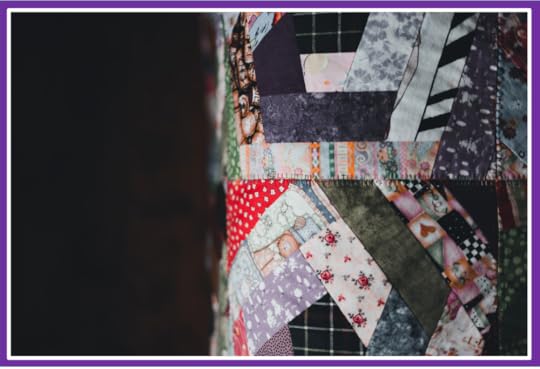
Photo: Eric McLean
Despite progress in the past fifteen years or so in terms of queer rights, there’s still a long way to go. I hope my stories will not only provide entertainment but will also demonstrate that queer people are just that: people.
So while there is a market for gay fiction in which the male characters seem almost female, there is also room for stories about real boys, real men. And this het cis woman—and my gay readers—believe I’ve written some of them.
Jody made me understand that even more important than gay pride was pride in being himself. And I write what I write because not every square in the AIDS quilt is made of cloth.
June 25, 2022
"It ain't about religion. So there."
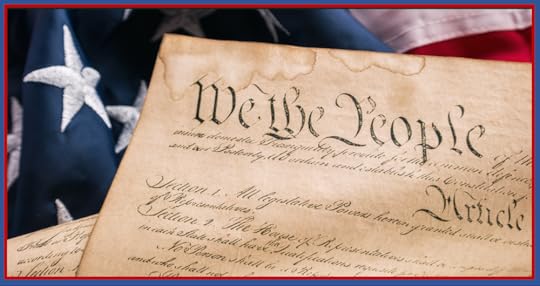
"The Constitution does not confer a right to abortion.” Thus spake Justice Samuel Alito in his majority opinion concerning the June 24, 2022 U.S. Supreme Court Dobbs v. Jackson Women's Health Organization decision rescinding Roe v. Wade.
Alito is taking the originalist position on interpreting Constitutional law to the extreme. Standard originalist theory is that the Constitution should be interpreted according to the intention of the framers, insofar as we can infer it.
In the Dobbs decision, Alito goes a giant step further: If it doesn’t specify something in the Constitution, it isn’t supportable by law.
Alito might have gone a different direction. He might have insisted that life begins at conception, or life begins when there’s a heartbeat, or life begins at some other milestone in the embryonic development, thereby declaring that abortion is murder in the eyes of the Christian God by virtue of taking that life.
It seems Alito is clever enough to avoid that pitfall; after all, the First Amendment of the Constitution separates church and state (the establishment clause and the free exercise clause).
But has he fallen into a different trap? Possibly. Because it wasn’t until a century after the Constitution was penned that slavery was ended (Amendment 13, 1865) or that non-white males were given voting rights (#15, 1870). And women couldn’t vote until Amendment 19 was ratified in 1920.
In other words, there is a heck of a lot in what Americans refer to as “our rights” that the Constitution’s framers did not include. For example, interracial marriage was illegal until 1967 (Loving v. Virginia). Marriage equality for all citizens didn’t exist until 2015 (Obergefell v. Hodges). And there are many more gems we take for granted today, rights that might be considered “unconstitutional” according to the originalist viewpoint.
For example, while the framers of the Constitution didn’t specifically omit women from the enjoyment of rights accorded to white male property-owners, as recently as 1971 a woman was not allowed to do the following:
get a credit card in her own name
be legally protected from getting fired if she became pregnant
serve on a jury in many states
serve in the military on front lines
attend most ivy league colleges and universities
be legally protected from workplace harassment
refuse for any reason to have sex with her husband
pay the same as men for health insurance
obtain birth control without restrictions or spousal permission
obtain a legal, safe abortion
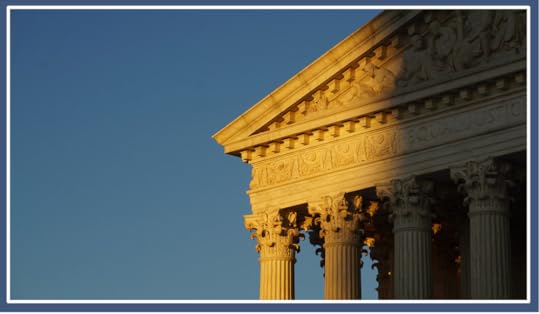
Clearly, the originalist approach to the Constitution is, at minimum, problematic. And when judges like Alito and the other SCOTUS justices who agreed with the Dobbs decision are so desperate to avoid the religion card that they fall back on the paper-thin logic Alito’s statement offers, we might as well be living in 1776 once more. And if the current bench of Supreme Court justices has their way, we will be.
May 6, 2022
To be gay. To be a priest. And to be true.
Once upon a time I lived in New Haven, CT. It was for only two years. But during those two years I met someone who became a life-long friend. Now, his face is on the cover of my latest novel, the first book in my Blessed Be series: For Love Of God, release date 16 June 2022. (Pre-order available now.)
At the time I met him, he was in transition from being an actor, about to become a candidate for the Episcopal priesthood. He attended General Theological Seminary in New York City, was graduated, and began a life dedicated to loving. All this sounds fairly pro forma until you know one very important thing about him: he’s gay.
When I decided to write a story about a gay priest, I approached my friend to advise me, to help my work be as accurate and as sensitive as possible. He was very generous with his time, his insights, and his personal experience, helping me understand what life would be like for my main character, Spencer Hill, as a gay man who feels called to the priesthood. It was only during the last few months of writing this story that I became aware of the tremendous strength of character, courage, and determination my friend showed in refusing to turn away from his calling or to betray his personal truth.
He refused to lie. He also knew that living a life that denied who he was would not only be less authentic for his parishioners, but also it would feel like slapping God in the face.
Despite progress in many areas, the denigration of queer people continues to be a problem that affects and sometimes ruins lives. For Love Of God, and the whole of the Blessed Be series, is my latest effort to help bring respectful acceptance to the queer community.
READ CHAPTER ONE
January 19, 2021
The Enigma of Choice
Recently someone asked me what I miss most in this time of pandemic. Different losses flooded into my brain: meetings with friends and family; restaurant meals; museums; taking grocery shopping for granted; traveling for vacation....

Very quickly, though, my brain landed on the loss that defines all others: Choice.
Despite my loss of choice, my own circumstances are as good as they can be, and I am so very grateful for that. By staying in my cage, which is gilded compared to many others, I am able to keep this virus at bay.
So, for me, the loss of choice is a question of limitation. For others, it’s potentially much darker. For others, the choice of keeping themselves safe and sheltered has disappeared:
people whose income relies on standing behind a plexiglass shield and handling thousands of items each day, items that have been touched by countless people who might or might pass the virus along to them
parents of children, whether those children travel to and from school each day or are in virtual classrooms, children who do not understand the danger and know only that they don’t have the choices of playing with their friends, going to movie theaters, or competing in their favorite sports
people who have lost their sources of income and are in danger of losing (or have already lost) the very shelter that might keep them safe
medical professionals who expose themselves moment by moment to the dangers of this virus and who must explain to family members that their loved one must die alone—the ultimate loss of choice
In the story of the Garden of Eden, humans are given a choice: whether to reach for knowledge and understanding or remain ignorant and two-dimensional in a world that offers no risk and no reward. In some ways, I wish we could return to that Paradise where there was no pain, no danger, no loss.
But there was also no pleasure, no exhilaration, no accomplishment. Theirs was a featureless world, for they could not understand Paradise if they had never known anything else. If those first humans had not chosen to know evil, they could not have known good.
And consider this: That tree with the fruit Snake offered was there, whether they chose to taste it or ignore it.


We have a choice to make. We can choose ignorance. We can turn our backs on the reality of evil. We can insist that this virus does not exist, that there is no snake in the tree, that the fruit is not poisonous. We can refuse to believe that we would sicken and die. Or we can choose understanding.
The new U.S. president, Joe Biden, says he will mandate the wearing of masks in every way he can. He will take choice away. But we are not in Paradise. We do not live in a world where the choice is black or white. Our world is more complex. And the removal of choice comes with understanding: In allowing our choices to be limited, we allow good to enter. We help ensure that the people we are not socializing with now will be there when it is once again safe to do so. We can’t eliminate the evil, but can choose to limit it.
Let us choose limiting our choice now. For it will limit death even more for everyone.
October 23, 2020
Pope Francis drops another sentimental pebble
I’m not Catholic. This might mean that I don’t have an insider’s understanding of how any of the pope’s words affect his followers. But also it might mean that as an outsider, I can see more objectively what effect those words have.
In a recent documentary, Pope Francis said he supports civil unions for same-sex couples. He also said, "Homosexuals have a right to be a part of the family."
Sounds good, right? Let’s see what affect it has on the people most affected by it.

Civil Union vs. Marriage
I’ve heard from many people who are excited about this statement. They say, “This could mean the Catholic church will allow adoption by gay couples!” or "This could change employment practices at Catholic hospitals!" or "This could change the dynamics of families with gay children!”
Yeah, I suppose it could. But will it? Or will individual diocese, bishops, and priests continue to follow the dogma they’ve always followed: that homosexuality is a sin and must be condemned? Why should they change? No one has instructed them to do anything different from what they’ve always done.
How likely is it that heterosexual Catholics would be happy being allowed a civil union but not a marriage? Answer: Not at all. So what, then, is the offer of a civil union without marriage? Isn’t it confirmation that queer Catholics are not “part of the family” but are, instead, still on the outside peering through dark stained glass windows? And, after all, Pope Frances has no authority over civil law.

Part of a Pattern
“Oh,” I hear some excited Catholics say, “he said this before, a couple of years ago, but the Vatican censored the statement. So now that they’ve let it stay in the documentary, this signals a huge change in their thinking!”
Is change, in fact, signaled? Maybe. But how huge is it? To me it looks huge only by virtue of the bar being so low to begin with.
Then I hear, “What about the apology he offered to gays and lots of other people?”
“What apology?” I ask. “To whom did he say it?” Answer: He said it to a bunch of reporters. In 2016. So—where is it? Has he actually apologized to anyone? What has he instructed Catholics to do?
Among other things, Catholicism asks of its members that they confess sins, offer repentance, gain absolution, and then actually repent—that is, change their ways. That statement on the plane amounted to nothing more than a pale, generalized confession. Because what, exactly, is he apologizing for, and what will he do to change things?
He’s famous for saying it’s not his job to judge gay people. But doesn’t he still expect God to do so?
He does say that the church must ask forgiveness for this mistreatment. Whether he got that forgiveness, I don’t know. But I know this: There has been no repentance.
Moving the Church Forward Slowly
Now I hear, “Pope Francis knows the church doesn’t change quickly.”
Based on its history, clearly the Catholic church takes the long view. A helpful image might be that of turning a barge in a canal. But people don’t live for centuries. People seldom live for one century. And for most of that potential century, queer Catholics suffer either isolation and/or condemnation or they suffer tolerance. You don’t think tolerance is suffering? Would you want to be “tolerated?”
Even with this latest statement, queer Catholics are denied full entry into “the family,” and—even if civil unions become common among this group—the isolation will continue. At this snail’s pace, tolerance (if that even comes) will be all they get in their lifetimes, perhaps their children’s lifetimes, perhaps their grandchildren’s lifetimes. And—really—haven’t they waited long enough?
Just Another Pebble
Pope Francis has shown himself to be a sweet, loving man, full of Christian goodwill. No argument there. He seems fond of dropping these sentimental pebbles behind him, perhaps in the hope that the church itself will soften. But he has not shown himself to be a man of action.
He is the pope, the earthly representative of the Catholic God, and (supposedly) his authority comes from there. He is the leader of the Catholic church. Where is his leadership? Why has he not done more than drop pebbles? Why is the extent of his “apology” nothing more than a trail of sweet words?
Is he waiting to see if the pebbles land in ponds and send ripples out across the water? If so, it means he’s willing to see people drown in the meantime.

October 8, 2020
A little help from my friends
Opioid addiction. Wilderness leadership. Living with disabilities. These are all subjects about which I knew little or nothing when I started writing On Chocorua, the first book in my Trailblazer series.

That didn’t stop me. I’ve never followed the stale advice, “Write what you know.” I’ve written about dog behavior, “ex-gay” camps, synesthesia, autism, Neo-Paganism, Straight Edge, and many other things I had to research. But when it came to those three subjects in Trailblazer, I knew I’d be in trouble if I didn’t have some help.
Opioid Addiction“When you’re in it, what you’re addicted to feels like your friend.”
“It seems better than suicide.”
“It's a substitute for hope in a hopeless situation. So, giving it up…. Fuck. That feels like letting go of the only thing that's keeping you alive.”
This is how the character Alden Armstrong describes his experience of addiction to fentanyl. Nathan Bartlett is the main character in Trailblazer, and Alden was his boyfriend in On Chocorua. Whenever fentanyl, drug use, or addiction found its way into the manuscript, I made sure it passed muster with my subject matter expert: Patrick Frame, MSW LCSW.
Patrick had contacted me just as I’d started working on Chocorua. He wanted me to know how much my writing had helped him validate his identity as a gay man. When he told me that he counseled LGBTQ+ individuals, I asked whether he could—and would be willing to—guide me in terms of writing about addiction.
Patrick gave his time and offered his expertise generously as I worked on my story. I can’t thank him enough.
On the Edge of a Cliff“Keep your backpack and tent fully zipped. You don’t want to invite centipedes, or spiders, or scorpions.” [Conroy to the Kalalau hikers as they prepared to retire on their first night on the trail ]
“You can do it. You’re intrepid.” [Conroy, encouraging and calming a hiker in an extremely precarious position]
“That man knows what he’s doing. He’s prepared, competent, and very good in a crisis.” [a hiker’s assessment of Conroy Finnegan’s leadership during a traumatic event]
I’ve done quite a bit of hiking. I’ve even led day hikes for nature photographers. But trekking along cliff edges, camping on the trail for nearly a week, bringing everything with you (and out with you again), and being responsible for the lives of several strangers was not something I’d done.
Fortunately for me, I knew of an expert in these aspects of leadership: Nelson Earl. Nelson, trained in CPR and first aid, leads individuals or groups of people into a variety of landscapes. As he puts it: “I know what I’m doing.” And he helped me make sure that Conroy knew what he was doing as I wrote On The Kalalau Trail.
Life and Love In a Wheelchair“This chair isn’t me. It’s just the way I get around. Am I disabled? Yeah, I am. Am I helpless? No fucking way.”
[Nathan asks] “So how would you make love to me?” Drew drained his wine glass and sat back in his chair a little. He didn’t smile. “Let me count the ways.”
[Drew, from his GRIT Freedom Chair (wheelchair), on finding out Nathan did not own a mountain bike] “Well then, Nathan, you’re never gonna be able to keep up with me.”
While I’d known that sensitivity and perspective would be crucial as I wrote about opioid addiction, those requirements were—if anything—even more important as I created the character of Drew Madden in On The Precipice. Fortunately, I had a wonderful partner in Stevie M. Jonak, a wheelchair user herself. Stevie not only read lots of my draft material and gave honest, helpful answers to many potentially awkward questions, but she also wrote a heart-felt, informative, and even inspiring foreword for the book.
People living with disabilities—not just those who use wheelchairs—experience many challenges most of us never consider. Far too many of the disabled have to spend much more time and much more money than the abled to accomplish the daily activities of life others take completely for granted. Drew Madden has money and can make his life much easier than the vast majority of the disabled. Stevie hopes we keep this in mind as we read the story.
“Thank You” barely scratches the surfaceWithout my generous subject matter experts, I could not have written the Trailblazer stories with nearly the accuracy or sensitivity I hope I achieved.
Nathan Bartlett thanks these open-hearted individuals, who gave freely of their time, their expertise, and their honesty. And so do I.
Robin Reardon: Speaking of writing...
- Robin Reardon's profile
- 181 followers



